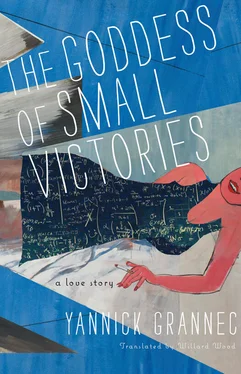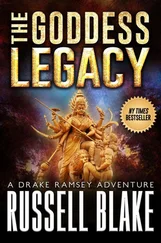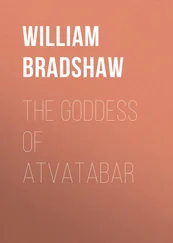48. NOVEMBER 22, 1963: Boredom Is a Surer Poison
We grow old — even the length of the day is cause for tears.
— Kobayashi Issa
I checked my wristwatch: five thirty. Our visitor had a logician’s promptness. I swabbed my eyes before opening the door to a gangling young man with a long crooked nose, close-set brown eyes, and an endearing bald spot. I was immediately drawn to him: his small smile was sincere, his gaze sympathetic. He wore an impeccable suit; Kurt would appreciate his punctuality and sartorial rigor. The young man wiped his feet zealously on the doormat and offered me a small box of chocolates.
“How do you do, Mrs. Gödel. My name is Paul Cohen. I have an appointment to see your husband, but I don’t know whether this is a very appropriate day for it.”
“Please come in. At least you’ll keep me from blubbing in front of this horrible television.”
“Is there any more news? I’ve been on the train all afternoon.”
“He died on the way to the hospital. The body is being flown back to Washington on Air Force One.”
“There’s practically a curfew in the streets. Everything has stopped.”
“I’m terrified! If the president can be shot, anything can happen.”
“Johnson will take the oath at some point today. The country’s stability is not in any danger.”
“Kennedy is irreplaceable. And when I think of poor Jackie … and those children!”
I relieved our visitor of his hat and coat.
“I was worried that I would be late. I had the wrong address.”
“Our street addressed changed in 1960. The neighborhood has grown. We traded in the number 129 for 145. But Kurt didn’t want everyone to know. It keeps unwanted visitors away.”
“His invitation took me by surprise. When I tried to see him at the IAS, he snatched my paper from me and slammed the door in my face.”
“My husband can be boorish, but he’s in fact harmless.”
“I’m very excited at the prospect of having tea with Kurt Gödel.”
“Don’t make too much of it, young man!”
I guided him into the small sitting room so that I could keep an eye on the television. He looked around at the furnishings, surprised at the flowered curtains and sofa. What did he expect? A cave? Kurt liked to raise his visitors’ anticipation; it therefore fell to me to make a little conversation with young Mr. Cohen. I hardly found it a chore: it was a pleasure to have a youthful visitor.
“My husband told me that a young man had solved his problem of the continuum hypothesis.”
“Did he really say his problem?”
I turned up the volume on the pretext of a news flash. All my regular programs had been replaced by a flood of nonnews. I soon turned away from the screen to query my visitor about his background. He had grown up in New Jersey but his parents had emigrated from Poland before the war.
“Adele, you are pestering Mr. Cohen with your police investigation.”
Deeply intimidated, Paul rose from his chair to greet Kurt. I thought it best to leave them to their mutual embarrassment.
“I’ll bring the tea. Would you like some cookies?”
“Just as you please.”
I made my way to the kitchen, working hard to contain my irritation. I couldn’t stand that expression. His “just as you please” was not a sign of affection or empathy but his way of showing that he had renounced all pleasure.
I had spent so many years repressing my own wants to maintain a semblance of serenity between us. Who would you like to see? What would you like to eat? What would give you pleasure? “Just as you please.” Nothing pleased me anymore. My resistance was all spent. I, too, was governed by emptiness.
While the kettle heated, I looked out the window at the sad, bare garden. I couldn’t remember how I had slid from happiness to resignation. Inside I was nothing but gray, and it had stiffened my muscles and my aptitude for joy. My mother had died in 1959. She lay in the Princeton cemetery a short distance from the house. We had already reserved the plot next to it for us. That spring, Marianne and Rudolf had returned to Princeton. They now showed up every two years. Nothing was more predictable than a Gödel. In June I’d managed to drag Kurt to the seashore. We quickly came home: too cold, too many people. This past summer of ’63, I’d chosen Canada, and the previous years I’d gone to Italy. When I got back, we celebrated our silver wedding anniversary. Marianne hadn’t even sent us a telegram of congratulations. I wasn’t surprised, but Kurt’s feelings were hurt. Twenty-five years of married life, ten years of living together secretly: an eternity, the sackcloth anniversary. The endlessness of daily life chafes one’s skin.
That morning, in preparation for Paul Cohen’s visit, I had tried to put makeup on my unfamiliar face. Those jowls, those wrinkles — was this really my body? The eyeliner no longer stuck to my sagging eyelids. The time had come to renounce war paint. I had become a fat old lady. Only my port-wine stain had stayed faithful. I wrote out lists of things to do, so as not to lose my footing. I gardened, I embroidered, I decorated the hermit’s lair. Kurt had complained about his office. I gave him my bedroom in exchange for his, because it had better light. Happy to have a mission, I arranged for a magnificent glass-fronted bookcase to be installed in his office. My armchair by the kitchen window was homeland enough for me; my little battery of house-cleaning items was family enough. Penny had died the spring before. I didn’t have the heart to replace her. I had adopted a pair of lovebirds and two stray cats. I had christened the big red cat “God”: he would hide on the top of a wardrobe and disappear for days at a time without a trace.
Why do people say that simple spirits are the most likely to find happiness? This little dancer never did. The day before, I went out on a few errands — my big adventure for the week — and stopped to look at a little girl of about ten. She was wholly absorbed in admiring her new shoes. Just then her mother emerged from a store and motioned to her to follow with a peremptory, affectionless gesture: “Stand straight, Anna!” Stung, the little girl lifted her head sadly and squared her shoulders. All her joy had evaporated at her mother’s command. I’d wanted to rush to her and take her in my arms: “Don’t give up, little girl! Never give up!” I had gone home dragging my shopping bag. I was reduced to watching other people’s children grow up.
I reentered carrying a tray. Two teas and a hot water. I watched my husband break a lump of sugar, study the pieces, and choose the smaller. For thirty years I’d watched him interrogate himself over his sugar ration. What would have happened if I’d just plopped the larger piece into his cup? Would the world have come to an end?
“Do you mind if I sit with you for a bit? The television might just decide to give us some fresh news.”
“Just as you please.”
The truth was, I was glad for a little company. It didn’t matter to me if I seemed intrusive. Our reputation in Princeton was already firmly in place: the madman and his shrew.
Our visitor was gripping his tea tightly. Unsure how to start the conversation, he opted for flattery. He thanked Kurt emphatically for his help in fine-tuning his article. Actually, Kurt’s sense of duty had left him no choice. Cohen had made considerable progress where my husband had fallen short twenty years earlier. Kurt had broken the news to me as he read his mail: “A certain Paul Cohen has just proved that the continuum hypothesis is undecidable. Did you remember to buy milk?” I was careful not to show any emotion. I foresaw the anxiety attack that was bound to follow. How would he take being beaten to the punch, when he had held off publishing his own, earlier proof? He’d been deterred by his fear of detractors. I knew that his inner sense of perfection was by far the most intransigent censor. Yet according to his colleagues, Kurt was God the Father to all the young logicians. Science is an exercise in humility: he was forced to admit that he was only a humble link in the chain. Before him Cantor, after him Cohen. How did it feel to be confronted with a new version of himself? Did his greatness give him the right to feel resentment? For this was an abdication. Although he had carried the child for two decades, another man would claim its paternity. What fate was in store for this young man who dared approach the light? Would it cost him his vitality, as it had his elders?
Читать дальше












